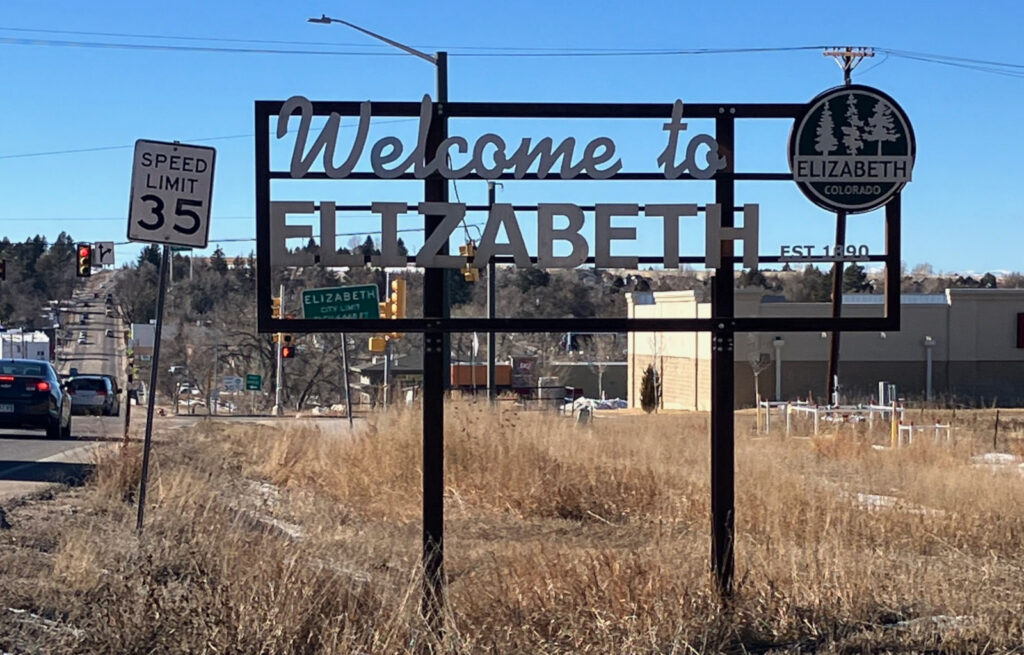By Jeffrey A. Roberts
CFOIC Executive Director
A judge will decide whether disciplinary records about the former police chief of Elizabeth are “personnel files” exempt from disclosure under the Colorado Open Records Act.
Lawyers for the town and 9NEWS investigative producer Aaron Adelson filed competing civil actions in Elbert County District Court last fall after Adelson tried to obtain a memorandum and related documents concerning the December 2022 resignation of Melvin Berghahn as chief.

The town clerk denied Adelson’s request for the records but then asserted in court that she is “unable, in good faith, after exercising reasonable diligence, and after reasonable inquiry” to determine whether CORA indeed prohibits disclosure of the records. Adelson, represented by attorney Rachael Johnson of the Reporters Committee for Freedom of the Press, filed a separate complaint, alleging that the clerk wrongly withheld the records and “improperly” filed a petition for a judicial clarification.
How the judge views the now-consolidated case — as a records requester’s lawsuit or as a town government’s petition for a clarification — makes a difference. CORA entitles a prevailing plaintiff to “court costs and reasonable attorney fees.” But the attorney fees provision does not apply in cases brought by records custodians who are unable to determine whether a record is public or not.
The records at issue in the Berghahn matter are not protected from public disclosure under CORA’s “personnel files” exemption, Johnson argues in a court brief.
She cited a 1999 Colorado Court of Appeals opinion in Daniels v. City of Commerce City that, to be classified as closed personnel file information, information about a public employee must be “of the same general nature” as an employee’s home address, phone number and personal financial information.
“As such, disciplinary files, which relate to an employee’s performance and not exempt demographic information, must be disclosed,” Johnson wrote.
Court briefs filed for the town and Adelson each refer to a 2015 Court of Appeals ruling that outlines factors to be considered in deciding whether disclosure of government information violates an individual’s privacy rights: 1) whether the individual has a legitimate expectation of non-disclosure; 2) whether disclosure nonetheless is required to serve a compelling public interest; and (3) if so, how disclosure may occur in the least intrusive manner with respect to the individual’s privacy right.
Town Clerk Michelle Oeser, in denying Adelson’s CORA request for the memo, asserted that Berghahn has a “legitimate expectation of privacy with regard to any disciplinary history or documents or resignation letters,” the town’s petition says.
But “[a]s a police chief,” Johnson argues, “Mr. Berghahn is a public employee entitled to only a narrow and limited privacy interest in the records at issue, for which there is plainly no extraordinary public interest in protection.”
And “there is a compelling public interest in understanding why a police chief was disciplined or resigned,” her brief adds. “… Indeed, the public interest in a public employee’s job performance is even stronger when individuals, in elected positions of leadership, or a high-visibility positions, such as Mr. Berghahn, who polices a community and is compensated with taxpayers’ dollars, resign.”
The town’s brief, prepared by attorneys Corey Hoffmann and Daniel Harvey, argues that the Court of Appeals ruling in the Daniels case doesn’t apply because it “did not address whether disciplinary records fell within the definition of ‘personnel file’ that is exempt from disclosure; nor did it determine disciplinary records are part of the language in C.R.S. § 24-72-202(4.5) that defines records not included within the definition of a personnel file.”
“Thus,” it adds, “absent more definitive guidance on what is or is not part of a former employee’s personnel file, the Town was compelled to err on the side of its former employee’s privacy interest in his disciplinary records.”
Hoffmann and Harvey also contend that details from the disputed documents have “little to no effect on the public, especially weighed against the privacy interests that are implicated. Even assuming there is some public interest in disclosing these records, that interest is significantly overshadowed by the privacy interests at stake in violating the privacy rights of Mr. Berghahn.”
The town’s brief accuses Adelson and 9NEWS of filing their lawsuit “only in an attempt to seek attorney fees.” But the CORA provision on judicial clarifications only applies to circumstances in which a records custodian in “good faith” is unable to determine whether disclosure of a public record is permitted, Johnson’s filing points out. The town, she noted, denied Adelson’s requests for the records “on four separate occasions.”
Follow the Colorado Freedom of Information Coalition on Twitter @CoFOIC. Like CFOIC’s Facebook page. Do you appreciate the information and resources provided by CFOIC? Please consider making a tax-deductible donation.




